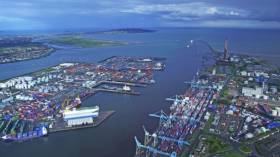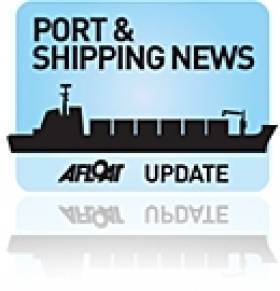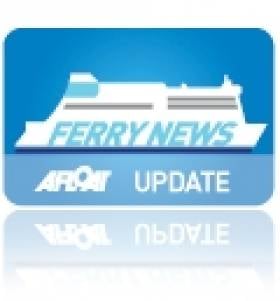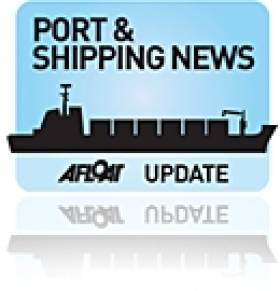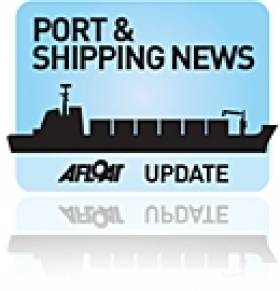Displaying items by tag: Irish Ports Association
Irish Ports Want Brexit Support From European Commission
#Brexit - An Irish ports industry body has called on the European Commission to shore up measures against the adverse impact of Brexit on marine passenger and freight transport between Ireland and the continent.
The commission is proposing to realign the TEN-T network’s North Sea Mediterranean Core Network Corridor, which currently links Ireland to France via the UK land bridge.
The EC proposal would amend the corridor to link Dublin Port and the Port of Cork directly with core ports in Belgium and the Netherlands.
While the Irish Ports Association (IPA) says it welcomes this approach, it also believes that “additional measures” are needed “because of the adverse impact of Brexit on Ireland’s peripherality”.
“It is vital for all three of Ireland’s core ports and at least one French port to be included in these new maritime links,” said IPA chair Des Whelan.
“Importantly also, existing routes between Ireland and France are between comprehensive ports in both countries, and it is important that the Commission finds a way to include these strategically important comprehensive ports in the North Sea Mediterranean Core Network Corridor, even if they don’t fit neatly into the TEN-T framework.”
Whelan added: “The challenges facing Ireland and northern France as a result of Brexit are unprecedented, and sea port connections for direct routes between Ireland and France are more important now than ever before.
“It would be also be beneficial for Ireland to be linked directly to the Atlantic Core Corridor. Ireland is one of three member states that have no road or rail links into the internal market and, instead, have to rely on sea transport.”
Whelan said the IPA also calls for the European Commission to “explore new ways of supporting Ireland’s smaller ports in their efforts to help them to adapt to Brexit”.
Irish Ports Association Welcomes New Ports Policy
#Ports&Shipping- The Irish Ports Association (IPA) has welcomed the publication by Leo Varadkar, TD, Minister for Transport of the new national ports policy which sets out the policy framework for the future development of the sector, writes Dredgingtoday.com
IPA which is the representative body for the Irish ports sector and an affiliate of IBEC whose Head of Trade and Transport Policy, Pat Ivory said: "Ireland's commercial ports are key pieces of national and regional infrastructure, which will play a key role in economic recovery by facilitating both trade and tourism. It is essential that we have coordinated action across Government departments in implementing the strategy.
"It is important that the alignment of Ports of Regional Significance with local authorities be undertaken in a way that preserves the commercial focus of the ports' operations. This will require harnessing the necessary commercial expertise at local authority level and a clear decision-making framework to be developed to facilitate future port development."
Rosslare Europort to Host Irish Ports Conference
This year's Irish Ports Conference is to be hosted by Rosslare Europort on behalf of the Irish Port Association (IPA) and is to take place in Wexford on 30th September.
The event is the only one of its kind in Ireland this year where senior representatives from short-sea users, carriers, ports, logistics providers and the whole range of service providers meet to debate the topical issues of the day.
In addition the full-day conference provides those to network and explore further business opportunities and will culminate with the IPA's conference banquet.
The south-eastern ferry-port is to host delegates in the Ferrycarrig Hotel, just outside Wexford. For further information on booking and a (PDF) programme of the day visit the Rosslare Europort website by clicking HERE
Big Plans for Rosslare Europort
Ambitious plans to introduce load-on load-off (Lo-Lo) facilities at Rosslare Europort have been announced, according to a report in yesterday's Wexford People.
However, to facilitate all these developments, Mr Lynch said they will need the reclamation of up to 20 hectares of additional land and the deepening of part, or all, of the port from the current 7.2m to 9m and perhaps, eventually, 11m.
Mr Lynch said these developments would be facilitated, and accelerated, by of a port centric logistics zone (a grouping of activities dealing with freight transportation) on lands beside the south-eastern port.
Mr Breen said he recognises the 'fundamental and strategic importance of Rosslare Europort to the economic development of the county'.
The county manager said he will recommend that 'appropriate policies, objectives and development management standards are included in the draft plan to facilitate the development of the port', subject to the appropriate technical and environmental assessments.
As part of his submission, Mr Lynch also requested that the '1902 Lighthouse' at the port, which is recognised on the National Inventory of Architectural Services, not be included on the Record of Protected Structures.
Mr Breen said he would give further consideration as to whether it would be appropriate to de-list the lighthouse in advance of the draft plan.
Next month the port will host the annual Irish Ports Conference in the Ferrycarrig Hotel, Wexford on Friday 30 September.
- Rosslare Europort
- Ports and Shipping News
- Irish Rail
- Iarnrod Eireann
- Ferry news
- Rosslare Harbour
- Irish Ports Conference
- Irish Ports Association
- Ferrycarrig Hotel
- Railfreight
- Port Development
- National Inventory of Architectural Services
- Record of Protected Structures
- Irish Lighthouses
- Lighthouses of Ireland news
Wexford to Host Irish Ports Conference 2011
The Irish Ports Conference 2011 is set for Friday 30 September in Wexford.
The theme of this year's one-day conference is 'Navigating a Sea of Change: Delivering Jobs Through Trade'.
Rosslare Europort will be hosting the event at the Ferrycarrig Hotel in Wexford Town.
Further information and booking details will follow shortly.


























